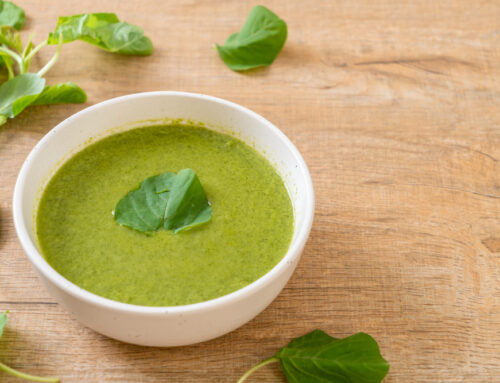By Quinn McCutcheon, Hom
With the winter months, comes cold weather, and with that comes cold and flu season. Cold and flu viruses thrive with less humidity and in cold weather. When this season is in effect, think Homeopathy. Homeopathy helps assist the body to relieve symptoms and support the immune system to return back to optimal health.
How to choose a remedy based on your symptoms:
Symptoms are our body’s way of talking to us. They are the sirens indicating that something is wrong. When choosing a Homeopathic remedy, it is very important to match the remedy to your existing symptoms. By matching the symptoms, this will support the immune systems response to fight the cold and flu, instead of suppressing it.
Below I have listen some remedies (there are many) that are generally well indicated during the cold and flu.
How to take the remedies:
Potency: 6c, 12c, and 30c are considered low to moderate potencies and what I would recommend for your at home dispensary. You always want to match the level of state of the individual to the potency of the remedy.
Dosage: 1 dose (3 pellets) every 1-3 hours, under the tongue, away from food and drink for 20minutes. After each dose, observe the individual. If symptoms subside, wait and watch, if symptoms persist, redoes. If symptoms do not improve after 3 doses, then try a different remedy.
Infants and children – you can crush the pellets with a metal spoon and have the baby lick off of your finger, or rub it into their gums.
Colds
Aconite
- Sudden onset of cold after exposure to dry, cold wind
- Acute, high, sudden fever
- Intense thirst for cold drinks
- Worse at night
- Photophobia
- Better with motion and open air
Camphor
- Icy coldness of the body
- Death-like pallor
- Burning heat in throat, sore and feels torn up
- Icy cold mouth/tongue- even hot tea seems cold
- *Wants to be uncovered even though icy cold
Ferrum Phosphoricum
- Beginning of cold accompanied by low grade fever
- Early stage infection/inflammation
- Flushed cheeks with pallor around the mouth
- Nose bleeds (epistaxis)
- Inflamed swollen tonsils
- First stage of otitis
Belladonna
- Sudden onset of cold or fever
- Flushed face, skin is hot and dry to touch
- Restlessness, sensitivity to light
- Redness (of throat, face)
- Infrequent thirst
- High fever with delirium
- Glassy pupils
- Thirst for cold, sour drinks
- Strawberry tongue
Gelsemium
- Warm, moist weather often brings on the slow onset of this cold
- Patient feels sluggish, chilly, with a dull headache and a heavy feeling in the eyes and limbs
- Wants to be alone
- Much sneezing and water discharge that irritates nose
- No thirst
- Dull, Dizzy, Drowsy
- Tongue coated yellow and trembling
Bryonia
- “The Bear” Wants to be left alone lying perfectly still, growling when disturbed
- Worse by slightest movement, warm rooms
- Thirst for large amounts of cold drinks
- Cough is hard and dry, accompanied by chest pains and bursting headache
- Dryness of mouth and lips
- Watery discharge and stuffy nose
- One of the most dry remedies
Arsenicum
- Burning pains relived by heat
- Thin, watery discharge, irritates nostrils and upper lip
- Burning but better with warmth
- Thirst for small sips (can be hot or cold)
- Worse after midnight
- Tongue pale, doughy or red at edge- takes imprint of teeth
Nux Vomica
- Intense horrible chills
- Sore scalp, headache so awful “even hair hurts”
- Nose runs in day, stopped up at night
- Nausea with vomiting (gastric flu)
- Very irritable and angry
- Need for stimulants
- Tongue: front is clear, back is coated
Allium Cepa
- Sneezing accompanied by streaming eyes and nose
- Bland fluent discharge from eyes
- Nasal discharge makes upper lip and nose sore
- Better in open air
- Coughing hurts larynx
- Canine hunger and thirst
Pulsatilla
- Thick, creamy yellow-green discharges
- Better open air in all phases
- Fever with no thirst
- Weepy, whiny, wants attention and sympathy
- Symptoms are constantly changing
- Better moving about/open air
Eupatorium Perfoliatum
- Obstructed, violent sneezing, with sneezing there is an aching of the bones
- Violent loose cough
- Bitter taste in mouth
- Hoarseness
- Tongue whitish and “furry”
Hepar Sulphuricum
- Foul smelling discharges
- Very sensitive to drafts
- Painful otitis
- Pain extends to ears on swallowing
- Pain in throat, as if fish bone stuck
- Chilly and sweaty, sour smelling perspiration
Kali Bichromicum
- Sticky, stringy, ropey long nasal discharge, difficult to get out
- Throat: red and swollen, sensation of a hair on palate
- Sputum excessive and thick
Coughs
Rumex Crispus
- Cough occurs when going outside
- Person has dry, tickling, irritated short paroxysms of coughing or a constant hack
Spongia
- Patient wakes up from sleep with suffocating feeling
- Difficulty breathing
- Anxious with croup
- Barking, croupy, or irritated cough, often with constriction or tickling in larynx.
- Marked burning in the throat, larynx and chest with each cough.
- Better from eating and drinking
Antimonium Tartaricum
- Noisy, rattling, loose cough, as if chest is filled with mucus.
- Weak, drowsy, sweaty pale face
- Worse from sour foods, liquid and milk
- Better sitting up, cold, open room
Flu
Arsenicum
- Restless, fearful, aching and irritable patients
- Thirsty for sips of water, better for warm drinks, worse from cold ones
- Dislikes the smell, or even the sight of food
- Burning pains here and there
- Worse after midnight
Eupatorium perfoliatum
- Deep aching in the bones, even the eyeballs
- Feel “wiped out”, unable to exert least effort
- Usually thirsty, especially as chill comes on
Gelsemium
- Slow onset of chilling, aching, lassitude and fever
- Patient is not thirsty
- Apathetic and indifferent to life
- Lies quietly, eyelids drooping
Nux Vomica
- Irritable, chilly, extremely sensitive to noises and odors
- Gastric flu
- Cannot get warm, shivering
- Worse from cold or open air
- Better lying down and from warmth and strong pressure on painful area
Phosphorus
- Appears well despite high fever
- Colds that go to the chest, accompanied by a dry violent tickling cough
- Nausea
- Burning pains in stomach, intestines
- Weak
- Thirsty for refreshing cold drinks, but may vomit as soon as the water is warm in the stomach
- Laryngitis without pain or with pain, may lose voice completely
- Worse warm food and drink
- Better open air, and cold food






